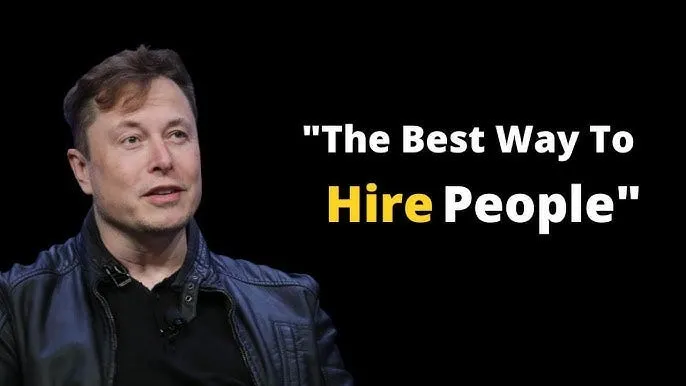Introduction: A Bold Challenge to Traditional Hiring Norms
Elon Musk, the global entrepreneur known for pushing boundaries with ventures like Tesla, SpaceX, and Neuralink, has once again disrupted convention. This time, his focus is on transforming the hiring landscape. Musk, in a bold move, is emphasizing skills over formal education for software engineering roles at X (formerly Twitter). This paradigm shift highlights the growing importance of practical expertise in today’s tech-driven world. For job seekers and employers alike, it’s a wake-up call to reassess priorities and embrace a future that rewards capability over credentials.

Key Points Overview
- The shift from credential-based to skill-based hiring.
- Implications of Musk’s approach for job seekers and employers.
- The global rise of skills-first recruitment.
- Practical steps to succeed in a skills-focused job market.
- Potential challenges and solutions in adopting this model.
The Decline of Traditional Hiring: Credentials vs. Capabilities
For decades, a university degree has been a primary requirement in job descriptions. It symbolized knowledge, discipline, and a baseline capability. However, Musk’s hiring philosophy reflects a growing realization: formal education doesn’t always equate to workplace effectiveness. Real-world success often depends on creativity, problem-solving skills, and the ability to adapt—qualities that aren’t always nurtured within the confines of a classroom.
As industries evolve, the limitations of traditional hiring become increasingly evident. Credentials may validate theoretical understanding, but they often fail to measure an individual’s practical aptitude, passion for learning, or ability to contribute in a dynamic work environment. By prioritizing skills, Musk challenges the long-held belief that degrees are the ultimate gateway to professional success.
The Power of Skills in the Modern Workforce
- Real-World Problem Solving: Hiring based on skills ensures that candidates can tackle practical challenges, a critical aspect in industries like software engineering where problem-solving is key. Skilled employees tend to excel at identifying issues and delivering innovative solutions, thereby driving organizational growth.
- Diverse Talent Pools: By prioritizing skills, companies open their doors to self-taught professionals, bootcamp graduates, and individuals with non-traditional learning paths, thereby fostering diversity. This approach levels the playing field, enabling underrepresented groups to shine based on merit rather than traditional benchmarks.
- Adaptability to Technological Change: As technology evolves, specific degrees may become outdated. Skill-based hiring promotes continual learning and adaptation. It encourages professionals to stay current with industry trends, ensuring that businesses remain agile in the face of rapid innovation.

Musk’s Approach: A Glimpse into the Future
At X, Musk’s hiring strategy focuses on identifying candidates who exhibit exceptional programming skills regardless of their educational background. This approach is redefining the recruitment landscape in several ways:
- Skill Tests over Resumes: Instead of traditional resumes, candidates are evaluated through coding challenges and real-world problem scenarios. These assessments provide a direct measure of a candidate’s capabilities, cutting through the noise of academic qualifications.
- Open Doors for Non-Traditional Talent: Musk’s approach recognizes the value of self-learners, YouTube coders, and individuals who’ve honed their craft outside traditional institutions. This inclusivity not only diversifies talent but also encourages innovation by bringing fresh perspectives into the workplace.
- A Culture of Meritocracy: By emphasizing skills, this model promotes a merit-based culture where opportunities are earned through demonstrated ability rather than pedigree. This ensures that talent is recognized and rewarded fairly, fostering a more equitable workplace.
Benefits for Job Seekers and Employers
For Job Seekers:
- Lower Barriers to Entry: No degree? No problem. Showcase your skills and land your dream role. This model democratizes opportunities, enabling individuals from all walks of life to succeed.
- Focus on Growth: With emphasis on skills, individuals are motivated to continuously upskill. This lifelong learning mindset prepares professionals to navigate the evolving demands of their industries.
- Equal Opportunities: Diverse candidates find recognition for their unique journeys, helping to break down systemic barriers and biases.
For Employers:
- Enhanced Productivity: Skilled hires translate to immediate contributions. Their ability to deliver results from day one can accelerate project timelines and enhance overall efficiency.
- Broader Talent Pool: Companies can tap into untapped potential beyond traditional graduates. This approach diversifies their workforce, bringing in fresh ideas and perspectives.
- Future-Proof Workforce: Employees driven by learning adapt faster to industry shifts, ensuring that organizations remain competitive in a rapidly changing landscape.

How to Thrive in a Skills-Focused Market
- Master In-Demand Skills: Stay updated on industry trends. In software engineering, for example, proficiency in programming languages like Python, JavaScript, and frameworks like React is crucial. Emerging areas like AI, blockchain, and cloud computing also offer lucrative opportunities.
- Build an Impressive Portfolio: Showcase your skills through personal projects, contributions to open-source, or freelance work. Platforms like GitHub and Behance can help demonstrate your expertise and commitment to growth.
- Continuous Learning: Utilize resources such as online courses, coding bootcamps, and webinars to stay competitive. Sites like Coursera, Udemy, and LinkedIn Learning offer accessible options for skill development.
- Networking and Collaboration: Engage in hackathons, join professional forums, and connect with peers to expand your network and learn from others. Networking not only provides exposure but also opens doors to mentorship and collaboration opportunities.
- Leverage Technology: Use tools and platforms that simulate real-world scenarios to practice your skills. Whether it’s participating in coding challenges on HackerRank or building prototypes, hands-on experience is invaluable.
Challenges and Solutions in Adopting Skill-Based Hiring
Challenges:
- Bias Towards Traditional Methods: Many organizations still lean on degrees as a benchmark, making it challenging for non-traditional candidates to gain recognition.
- Verification of Skills: Without formal credentials, verifying expertise can be complex. Employers may struggle to distinguish genuine talent from exaggerated claims.
- Resistance to Change: Transitioning from traditional hiring practices requires mindset shifts among leadership and HR teams.
Solutions:

- Standardized Skill Assessments: Develop industry-wide tests for objective evaluation. Tools like coding challenges, technical interviews, and simulated projects can help gauge abilities accurately.
- Awareness Campaigns: Promote success stories of non-traditional hires to build confidence in this model. Highlighting real-world examples can inspire other organizations to follow suit.
- Employer Training: Equip hiring teams to identify and value skills effectively. Workshops and training sessions can help HR professionals embrace this new paradigm.
FAQs
Q1: Why is Elon Musk against traditional degrees for hiring?
A1: Musk believes that formal education doesn’t guarantee real-world skills or creativity, which are essential in tech roles. He emphasizes the importance of practical expertise and problem-solving abilities.
Q2: What skills are most valued in the tech industry?
A2: Key skills include programming (Python, JavaScript), AI/ML, data analysis, cloud computing, and software development frameworks. Soft skills like collaboration and adaptability are also critical.
Q3: How can I prove my skills without a degree?
A3: Build a portfolio, complete online certifications, and participate in projects to demonstrate your expertise. Networking and contributing to open-source initiatives can also boost your credibility.
Q4: Are companies other than X adopting skill-based hiring?
A4: Yes, companies like Google, IBM, and EY have also embraced skill-first recruitment strategies, recognizing the value of non-traditional talent.
Q5: What resources can help in upskilling?
A5: Platforms like Coursera, edX, Codeacademy, and LinkedIn Learning offer excellent courses for various skillsets. Joining communities like Stack Overflow or GitHub can provide additional learning opportunities.
Conclusion: A New Era of Opportunities
Elon Musk’s skill-centric hiring philosophy at X signals a seismic shift in the job market. It’s a testament to the evolving value systems in today’s professional world, where what you can do matters more than where you’ve been. For job seekers, it’s an invitation to focus on tangible skills, and for employers, it’s a chance to redefine what talent truly means. Together, these changes promise a future where merit and ability triumph over traditional norms, fostering innovation, inclusivity, and unparalleled opportunities for growth.







